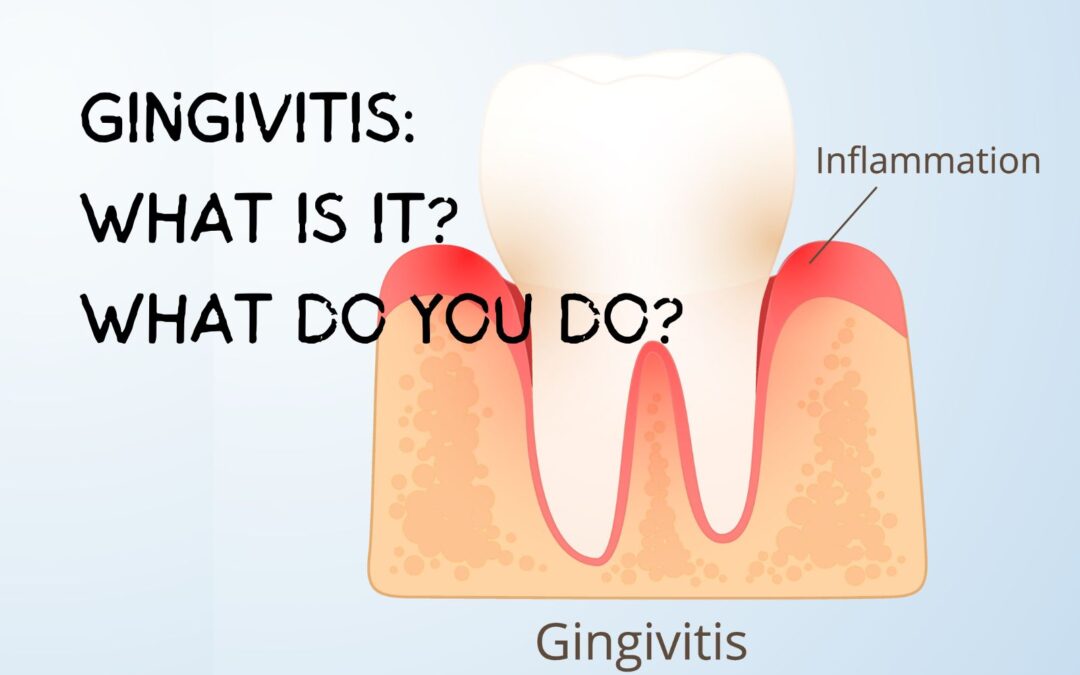Gingivitis is a common and mild early form of gum disease (periodontal disease). It causes inflammation, bleeding, and swelling of your gingiva, the part of your gums where your teeth and gums meet.
The link between gingivitis and inflamed gums is straightforward. When plaque builds up on your teeth, it can cause gingivitis. If you do a good job of daily brushing and flossing and get routine professional cleanings, most, if not all, plaque on your teeth is removed.
However, plaque may remain. If it does, it may result in the development of gingivitis.
This results from the toxins generated by plaque bacteria, which can irritate your gum tissue, inducing inflammation. Your gums get inflamed because your immune system is working to fight off the harmful bacteria.
You’ll notice red, swollen, and tender gums if you have gingivitis. Your gums may also bleed easily, especially during brushing or flossing.
If you ignore gingivitis, it can lead to periodontitis, the more severe form of gum disease. In periodontitis, the supporting structures of your teeth can become inflamed, leading to bone and eventual tooth loss.
Brushing and flossing regularly and getting professional dental cleanings are essential ways to prevent and treat gingivitis. Additionally, you should maintain a healthy lifestyle, including a healthy whole-food diet and avoiding tobacco use. Your gum health and your systemic health are linked.
Gingivitis, the early and mild gum disease, is reversible with proper oral hygiene and professional dental care. Here are common approaches to treating gingivitis:
Improved Oral Hygiene Practices:
- Brushing: Brush your teeth twice daily using fluoride toothpaste. Using a soft-bristled toothbrush, brush gently and circularly to remove plaque without damaging the gums. Gentle is the key word because many patients brush too hard.
- Flossing: Floss daily to clean plaque and food out of areas that a toothbrush may not reach.
- Antiseptic Mouthwash: Use an antiseptic or antimicrobial mouthwash to help reduce plaque and fight bacteria in your mouth.
Professional Dental Cleaning:
- Get regular professional dental cleanings every six months. Your dentist or hygienist can better remove plaque and tartar you may have missed.
Dental Education:
- Your dentist may guide you through proper oral hygiene techniques, including personalized recommendations based on your dental needs. Our dental team educates our patients well because teeth need daily care and attention.
Treatment of Contributing Factors:
- If certain factors, such as misaligned teeth or dental appliances, contribute to plaque buildup, your dentist may address these issues to improve oral hygiene.
Lifestyle Changes:
- I’m sure you’ve heard this before, but if you smoke, quit. Tobacco use can contribute to gum disease.
- Eat a healthy and colorful diet rich in whole foods, which include fruits, vegetables, and whole grains, and limit sugary snacks and beverages.
Regular Dental Checkups:
- Get regular dental checkups so your dentist can monitor your gum and teeth health and address any signs of gingivitis early on.
It’s important to note that if you have gingivitis, it can progress to periodontitis, a more severe form of gum disease. Periodontitis can cause irreversible damage to the supporting structures of your teeth and lead to bone loss. If you have gingivitis, get a professional dental checkup immediately. Early diagnosis and treatment are essential.
If you suspect you have gingivitis or are experiencing signs such as redness, swelling, or bleeding gums, it’s also an excellent time to get a dental checkup. Remember, you only get one set of teeth. Cherish them, and they will love you back.
- What to Expect During a Dental Deep Cleaning
- Periodontal Disease Treatment Chicago
- Emergency Dentist Chicago
- Family Dental Chicago
- Invisalign Chicago
- Affordable Braces Chicago
- Pediatric Dentistry Chicago
- Root Canal Chicago
Sources: Gingivitis

